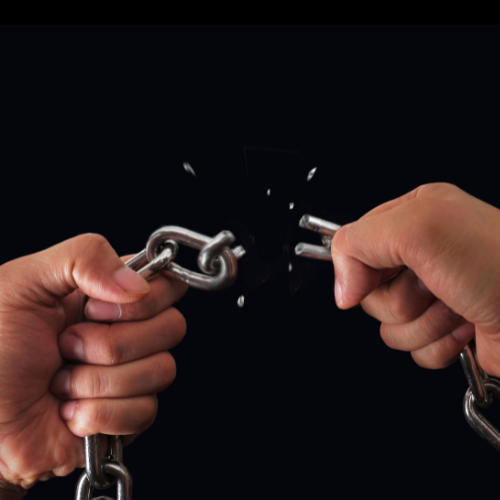Domestic violence is a devastating experience that leaves both physical and emotional scars. However, for many survivors, the pain of abuse is compounded by feelings of shame, guilt, and societal stigma. These feelings can be overwhelming, preventing survivors from seeking help, speaking out, and healing from the trauma they endured. Overcoming stigma in domestic violence is essential for survivors to reclaim their lives and for society to create a more supportive and empathetic environment.
This article explores the roots of shame and guilt in domestic violence, how societal stigma impacts survivors, and the strategies that both individuals and communities can adopt to address these challenges and support victims in their healing journey.
The Roots of Shame and Guilt in Domestic Violence
Shame and guilt are common emotional responses among domestic violence survivors. These feelings can stem from several factors, both internal and external.
Internalized Blame
One of the most damaging aspects of domestic violence is the tendency for victims to blame themselves for the abuse. Abusers often manipulate their victims into believing that they are responsible for the violence, leading to feelings of guilt and shame. Survivors may internalize messages such as:
– “If only I had been more accommodating, the abuse wouldn’t have happened.”
– “I must have done something wrong to provoke this behaviour.”
This self-blame can make it incredibly difficult for survivors to leave abusive relationships and seek help.
Cultural and Societal Expectations
Cultural norms and societal expectations around relationships and gender roles can contribute to feelings of shame in domestic violence survivors. In many cultures, there is an expectation that women (and sometimes men) should prioritize family unity and maintain relationships at all costs. Survivors may feel ashamed for “failing” to keep their relationship intact or fear judgment for leaving a marriage or partnership.
Additionally, societal stigmas surrounding abuse can lead to victim-blaming attitudes, where people question why the victim stayed in the relationship or why they didn’t report the abuse sooner. These attitudes reinforce the survivor’s feelings of guilt and isolation.
Fear of Being Judged
Survivors often fear judgment from their friends, family, and community. They may worry that people will see them as weak, broken, or complicit in their own abuse. This fear of judgment can prevent survivors from sharing their experiences, seeking help, or reporting the abuse to authorities.
The Impact of Stigma on Domestic Violence Survivors

The stigma surrounding domestic violence not only affects how survivors view themselves but also how they interact with the world around them. This stigma can have a profound impact on a survivor’s mental health, their willingness to seek help, and their ability to recover from trauma.
Mental Health Consequences
Feelings of shame and guilt can contribute to mental health issues such as:
– Depression: Survivors may experience persistent sadness, low self-esteem, and hopelessness due to the emotional toll of abuse and the stigma associated with it.
– Anxiety: Fear of being judged, blamed, or misunderstood can cause survivors to experience constant worry and anxiety, making it difficult to trust others.
– Post-Traumatic Stress Disorder (PTSD): The trauma of abuse, combined with the emotional burden of stigma, can lead to PTSD, characterized by flashbacks, nightmares, and difficulty coping with everyday life.
Barriers to Seeking Help
Stigma can create significant barriers to seeking help. Survivors may avoid reaching out for support due to fear of judgment, self-blame, or concerns about how others will perceive them. This reluctance to seek help can prolong the cycle of abuse and make it harder for survivors to access the resources they need to escape their situation and begin healing.
Isolation and Loneliness
Stigma often leads to isolation. Survivors may withdraw from social circles, avoid discussing their experiences, or distance themselves from loved ones out of fear that they will be judged or blamed for their situation. This isolation can exacerbate feelings of loneliness and make it harder for survivors to access the emotional support they need to heal.
Addressing Shame and Guilt in Domestic Violence Survivors

Overcoming the shame and guilt associated with domestic violence is an essential step in the healing process. While this journey can be challenging, there are several strategies that survivors can use to begin addressing these emotions and reclaiming their sense of self-worth.
Reframing Self-Blame
One of the most important steps in overcoming shame and guilt is reframing self-blame. Survivors must understand that they are not responsible for the abuse they endured. Abuse is a choice made by the abuser, and no one deserves to be treated violently or manipulatively.
Counselling and therapy can be incredibly helpful in this process. Therapists specializing in trauma and domestic violence can help survivors recognize patterns of self-blame and replace these thoughts with healthier, more accurate beliefs. Cognitive Behavioural Therapy (CBT), in particular, is effective in helping survivors reframe negative thought patterns.
Seeking Professional Support
Seeking professional support is a crucial step in addressing shame, guilt, and the emotional impact of domestic violence. Survivors should be encouraged to work with counsellors, therapists, or support groups where they can process their experiences in a safe, non-judgmental environment.
– Individual Therapy: One-on-one counselling provides a confidential space where survivors can explore their emotions, challenge self-blame, and learn coping strategies.
– Group Therapy: Group therapy offers survivors the opportunity to connect with others who have experienced similar situations. Sharing stories in a group setting can reduce feelings of isolation and help survivors realize they are not alone.
– Trauma-Informed Care: It’s essential that survivors receive trauma-informed care, which emphasizes safety, trust, and empowerment. Trauma-informed therapists focus on creating an environment that is sensitive to the emotional needs of survivors.
Practicing Self-Compassion
Self-compassion is a powerful tool in overcoming feelings of shame and guilt. Survivors should be encouraged to treat themselves with the same kindness and understanding that they would offer a friend in a similar situation. Practicing self-compassion involves:
– Acknowledging Pain: Recognizing the hurt and trauma that the survivor has endured and accepting that it is okay to feel sad, angry, or confused.
– Releasing Judgment: Letting go of the internal criticism and self-judgment that often accompanies feelings of shame and guilt.
– Embracing Humanity: Understanding that everyone makes mistakes, and no one is immune to suffering. Abuse is not a reflection of a person’s worth, but rather the actions of the abuser.
Rebuilding Self-Esteem and Confidence
Domestic violence often erodes a survivor’s self-esteem and confidence. Rebuilding these aspects of self-worth is an important part of the healing process. Survivors can work to rebuild their self-esteem by:
– Setting Achievable Goals: Survivors can start by setting small, achievable goals that give them a sense of control and accomplishment. These can be as simple as attending a support group or completing a task at work.
– Focusing on Strengths: It’s important for survivors to recognize their strengths and the resilience they demonstrated in surviving the abuse. Celebrating small victories can help boost confidence and encourage forward momentum.
– Engaging in Self-Care: Physical and emotional self-care activities, such as exercise, meditation, and creative expression, can help survivors reconnect with their bodies and minds in positive, nurturing ways.
The Role of Society in Overcoming Stigma

While survivors must take individual steps to overcome shame and guilt, society also has a critical role to play in reducing the stigma surrounding domestic violence. By changing how we talk about and respond to domestic violence, we can create an environment that supports survivors and encourages them to seek help without fear of judgment.
Promoting Public Awareness
Public awareness campaigns can help break down the myths and misconceptions surrounding domestic violence. These campaigns should focus on:
– Challenging Victim-Blaming: Addressing the harmful attitudes that blame victims for their abuse and shifting the focus to holding abusers accountable.
– Normalizing Conversations: Encouraging open discussions about domestic violence and fostering a culture where survivors feel safe speaking out.
– Educating the Public: Providing accurate information about the dynamics of abuse, the prevalence of domestic violence, and the resources available for survivors.
Encouraging Supportive Responses
Friends, family, and community members play an essential role in supporting domestic violence survivors. To reduce stigma, we must encourage supportive responses that:
– Listen Without Judgment: When a survivor shares their story, it’s important to listen without interrupting, offering advice, or questioning their decisions.
– Offer Emotional Support: Survivors often need validation and reassurance. Offering empathy and emotional support can help reduce feelings of shame and guilt.
– Provide Practical Help: In addition to emotional support, survivors may need practical assistance, such as help finding housing, accessing legal services, or connecting with counselling.
Supporting Policy and Legal Reforms
Legal reforms can also help reduce the stigma surrounding domestic violence. Advocacy for laws that protect survivors’ rights, provide access to safe housing, and ensure swift legal action against abusers is crucial. Additionally, workplace policies that support survivors—such as paid leave for court appearances or counselling—can help create an environment where survivors feel empowered to seek help.

Overcoming the stigma of domestic violence is essential for helping survivors heal, rebuild their lives, and regain their self-worth. Shame and guilt are powerful emotional responses that can hinder a survivor’s ability to seek help and move forward. However, with the right support—both from professionals and from their communities—survivors can challenge these harmful emotions, reframe their thinking, and reclaim their lives.
Society plays a crucial role in reducing the stigma surrounding domestic violence. By promoting public awareness, fostering supportive environments, and advocating for policy reforms, we can create a culture where survivors feel empowered to speak out and seek the help they need without fear of judgment. Domestic violence is not a private issue—it is a societal problem that requires collective action to address.
For survivors, the journey toward healing from domestic violence is often long and challenging, but it is also filled with the possibility of empowerment and renewal. By reframing self-blame, seeking professional support, and practicing self-compassion, survivors can overcome shame and guilt, rebuild their confidence, and embrace a future free from abuse.
At Healing Through Love, we are committed to supporting survivors on their journey to recovery. We believe that no one should face the trauma of domestic violence alone, and we are here to provide the resources, guidance, and empathy needed to break the cycle of abuse. By raising awareness, reducing stigma, and empowering survivors, we can work together to create a world where domestic violence is no longer tolerated, and every survivor can live with dignity and hope.
Key Takeaways
– Shame and guilt are common emotional responses for survivors of domestic violence, often driven by self-blame, societal expectations, and fear of judgment.
– Stigma can create barriers to seeking help, exacerbate mental health issues, and lead to isolation, making it essential to address these feelings for recovery.
– Survivors can overcome shame and guilt by reframing self-blame, seeking professional support, practicing self-compassion, and rebuilding self-esteem.
– Society plays a key role in reducing stigma through public awareness, supportive responses, and policy reforms that protect and empower survivors.
Australian Support Resources
- 1800RESPECT: National domestic violence hotline providing 24/7 confidential support.
– Contact: 1800 737 732
- Lifeline Australia: 24-hour crisis support and suicide prevention services.
– Contact: 13 11 14
- Relationships Australia: Offers counselling and support for individuals and families affected by domestic violence.
– Contact: 1300 364 277
- Legal Aid: Provides legal assistance and representation for survivors of domestic violence.
– Website: Check your state or territory’s Legal Aid service for specific contact details.
By breaking the silence, overcoming stigma, and supporting survivors, we can collectively contribute to ending domestic violence and creating a more compassionate society.
The journey from victimhood to survivorship is marked by resilience, strength, and the unwavering will to heal. We, as a society, can make that journey smoother by dismantling the stigma around domestic violence and offering survivors the support they deserve. Let’s continue to empower, uplift, and stand beside those who need us most.


